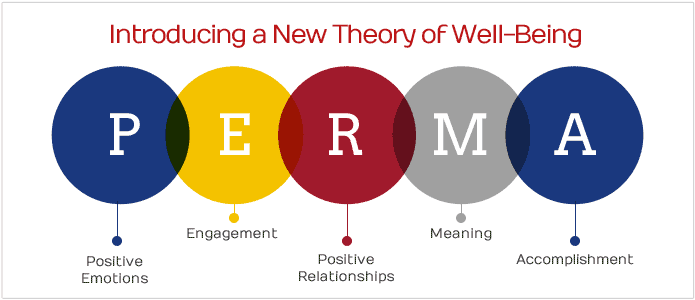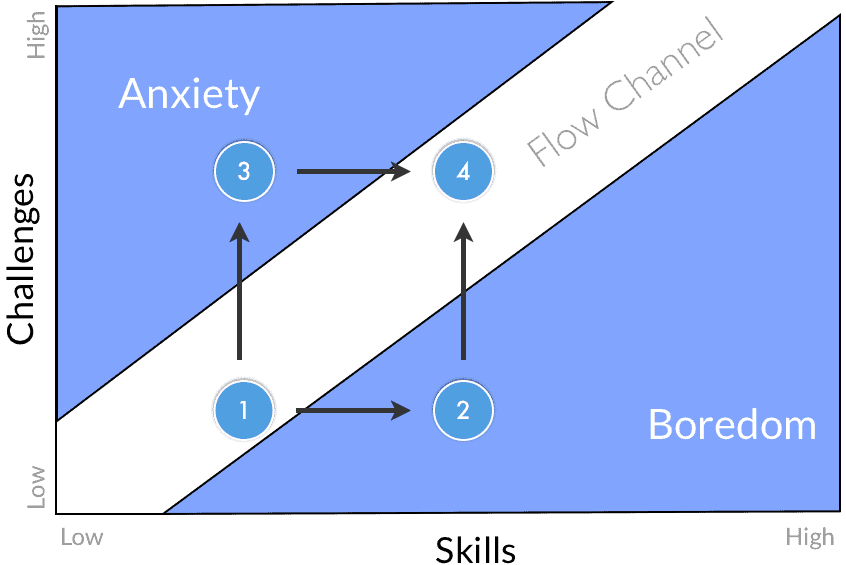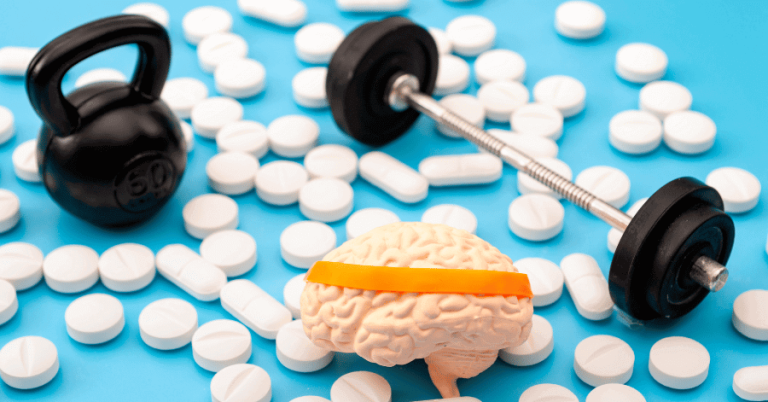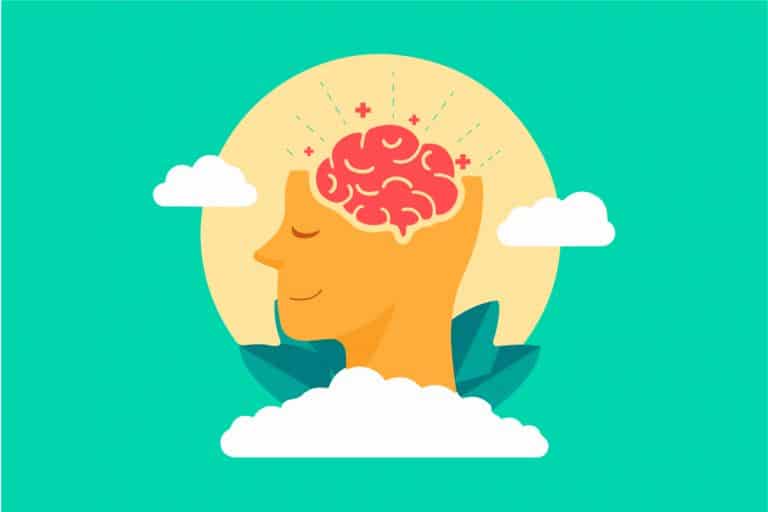Crafting and maintaining a positive attitude is easier said than done. There are endless self-help books on the market that claim you can “think yourself happy” and “positivity is a choice”. As you can imagine, much of this is simply wishful thinking; when we consider the science behind the brain we soon learn that positivity is not so easily attained.
Mankind tends to focus on the negative more than the positive. And this is not me simply being pessimistic – the negativity bias, man’s tendency to react more readily to negative stimuli, is etched into our DNA. Humans have relied on this instinct to make quick reactions in life-or-death situations and emerge as the dominant species.
Related Article: The negativity bias and how it affects every decision we make.
Our focus, therefore, is not to avoid negativity, for it occurs instinctively beyond our direct control (and is therefore unavoidable), but rather to learn how to deal with it
That is the aim of the field of Positive Psychology, and this article.
What is Positive Psychology?
Traditionally, psychology has focused on relieving human suffering. Before the 1930s, leading treatments were pretty gruesome and included inhumane practices such as lobotomies, purging the body of blood, exorcisms, and inducing comas through insulin overdose.
Fortunately, our understanding of psychology has come a long way. And psychologists are now realizing that the traditional approach to psychology, of relieving suffering by correcting what is wrong, is only half of the subject. What about those who want to promote positivity and flourish? What about those who not only want to survive but wish to thrive?
A relatively new field of psychology aims to address these very issues. Pioneered by legendary psychologist Martin Seligman, Positive Psychology has garnered much momentum in the last few decades.
The primary aim of Positive Psychology is to increase our well-being and to promote happiness, as opposed to simply making you feel less bad.
If traditional psychology helps individuals go from minus 8 to a normal of zero, positive psychology is concerned with taking you into the positive numbers.
What is Well-Being?
This may seem like a banal question, but we must define well-being precisely to fully understand the importance of positive psychology.
Well-being goes beyond simple happiness, which is merely a smaller and shorter-lived component of the grander vision. It requires a shift in mental perspective to encourage a different outlook towards people, interactions, and experiences.
The skills we need to increase our well-being are different from the skills required to alleviate suffering, hence the need for the two different types of psychology.
Research demonstrates that well-being is not only valuable because it feels good, but also because of its real-world results.
Compared to people with low well-being, individuals with higher levels of well-being tend to perform better at work, create and maintain more meaningful relationships, are more social, have stronger immune systems and physical health, live longer, sleep better and have greater self-control.
Perhaps most importantly, well-being boosts self-regulation and coping abilities i.e., we can better understand and deal with our emotions and thoughts.
Remember PERMA
Well-being is the focus of positive psychology and is the total result of five fundamental components. Together these components spell the acronym PERMA.
PERMA, as devised by psychologist Martin Seligman, encompasses all of the components needed to achieve a state of well-being and to therefore flourish. No single one of these elements defines well-being, but each contributes to it. Increasing the amount of each of these five components will in turn increase the extent to which you can flourish.
I highly recommend you read one of Dr. Seligman’s many books “Flourish”, which describes the field of positive psychology and well-being in great detail. Below are summaries of each of the five components of PERMA.

P – Positive Emotion
Joy, interest, contentment, and love are all familiar examples of positive emotions. They are simple emotions that make us “feel good”.
Whereas negative emotions such as fear, terror, and anxiety narrow our focus to make automatic decisions best suited for survival, positive emotions help broaden our attention to more creative thoughts, allowing us to bond, learn and master lasting skills and knowledge which benefit us indefinitely.
Any experience that releases positive emotions, such as joy, love, interest, and engagement, will naturally increase our sense of well-being. Whether it be a beautiful walk through a scenic forest or the birth of a first child, there is no limit to ways to experience positive emotions.
We can increase our positive emotions about the past (e.g., by cultivating gratitude and forgiveness), our positive emotions about the present (e.g., by savoring physical pleasures and mindfulness), and our positive emotions about the future (e.g., by building hope and optimism).
While positive emotion can provide intense happiness, these feelings are usually short-lived and last only as long as the activity itself. For example, the pleasure from the Sun’s warmth as you lay on the sandy golden beaches of Hawaii ends soon after you leave.
It is also thought that the degree to which you experience positive emotions is limited largely by genetics, i.e. it is partly heritable. Fortunately, positive emotions are just one of five ways to attain well-being.
So to increase your well-being, and hence to promote positivity, seek enjoyable experiences and activities which make you feel happy.
E – Engagement
Engagement is an experience in which one’s skills, strengths, and attention are dedicated to a challenging or rewarding task.
If you love carpentry then you will likely be highly engaged when building a new kitchen table. We know we are engaged when the task at hand becomes our sole focus and we become “in the zone”. If you have ever lost track of time when undertaking a task you enjoy, you will have experienced engagement.
Flow is the term used in the field of positive psychology to describe the magnitude of engagement and this feeling of being “in the zone”.
Flow
A concept called “flow”, as described by renowned Hungarian-American psychologist Mihaly Csikszentmihalyi, describes in-depth how we measure our sense of engagement.
Flow is best described as the state in which people are so involved in an activity that nothing else seems to matter. Concentration during flow is so intense that there is no attention left to think about any other issues or concerns that are not directly related to the task at hand. Here, self-consciousness disappears and your sense of time distorts.
You’ve almost certainly experienced flow before. Most entrepreneurs, when starting a business, are so intensely focused on what they’re doing that 12 hours might pass without realizing it.
They may be engaged through joy or fear (most likely a combination of both), but they are immensely engaged nonetheless. Nothing else matters except doing everything in their power to see the business succeed.
The same state can apply to any activity, whether it be an athlete focusing solely on beating their personal best or an expert pianist composing a new masterpiece. Flow can even be achieved when playing a video game for hours on end without realizing how much time you’ve spent playing.
During flow you are not thinking about past failures or stressing about what must be done tomorrow; you are free of all thoughts that aren’t necessary for the present task.
It’s an incredible feeling when you’re so immersed in what you’re doing, and doing what you’re good at, that your brain simply cannot focus on any other activities. It’s a legal high that all successful people chase.
So how does one achieve this sense of flow? The state of flow requires the correct balance between challenge and skill. Take a look at the graph below.

Take state 1. Here you have a low level of both skill and challenge. You might be learning to play the piano, for example, by practicing basic chords and arpeggios. Although the challenge is technically easy, your low level of skill makes it challenging and you are thus engaged.
You might practice for hours on end because you are so engaged that you lose all sense of time. Because challenge and skill are balanced, you fall in the low end of the flow channel. You are thus engaged but it can be easily removed if the challenge becomes harder or your skills improve quickly.
After practicing for some time, you may enter state 2. Here your skills are too high for the basic challenge of simple scales. The challenge is insufficient and you are thus neither engaged nor in flow. The boredom makes you count the minutes until your lesson is over and time seems to drag.
Feeling confident, you now try your hand at playing Hungarian Rhapsody NO. 2. The challenge is overwhelmingly difficult and you are now disheartened and enter state 3. The challenge is too high for your lower level of skill and you are in a state of anxiety which also prevents a sense of flow.
Finally, when your skills are high, and so is the challenge, you achieve the ultimate state of flow (state 4). The desire to play Beethoven’s Moonlight Sonata 3rd Movement flawlessly drives you to spend countless hours achieving near perfection.
This is the state we wish to achieve. Here productivity and quality are both high. And best of all you are engaged; your time has a purpose and you feel a sense of achievement as you make tangible progress towards your goal.
R – Relationships
We don’t need to have studied positive psychology to know that healthy relationships are vital for well-being. Strong businesses often have at least two partners to support each other (think Steve Jobs and Steve Wozniak of Apple or Larry Page and Sergey Brin of Google). In a harmonious marriage, the whole can become greater than the sum of its parts.
In a marriage gone awry, however, it can turn into a living hell.
Relationships and social acceptance/inclusion are built into our DNA. Prehistorically, survival chances increased through strength in numbers. The bigger the troop the lesser the threat from rival groups.
When we don’t have strong social relationships, our primal mind thinks it is isolated and therefore in danger from external threats. As a result, the subconscious mind screams at us to get back to the safety of the tribe, creating those all too familiar feelings of loneliness.
Cultivating and maintaining healthy relationships is therefore vital for keeping our primal subconscious minds free of feelings of isolation and loneliness. Maybe there are a few long-lost friendships you could rediscover?
M – Meaning
Living a meaningful life relates to attaching ourselves to a purpose of higher meaning than just our own needs. Loving someone, and being loved in return, is a meaningful phenomenon because such acts inspire us to live for a cause beyond our own existence. Pausing a career to take care of dependent parents, for example, can create a strong sense of meaning for many.
Religion, family, science, politics, work organizations, the community, and social causes are just a few groups and organizations where many find meaning. Finding meaning is easy for some, lucky for others, and difficult for many. It involves seeking new and varied experiences and relationships to expand your horizons, often outside of your comfort zone.
What creates meaning for you, however, will draw heavily on whatever traits and characteristics are most important to you individually.
Despite what many say, our purpose is not something decided at birth. We are not “born to play the piano” or “born to become an athlete” (although some are better suited to certain activities, such as tall athletic people to basketball).
As we grow and develop we must find out what values and characteristics are most important to us and devote ourselves to activities that best compliment them. This is the way to a meaningful life of well-being.
A – Accomplishment
The final component of well-being, accomplishment, builds self-esteem and provides valuable reassurance to your subconscious mind that you are capable and valuable. Whether it be through careers, sports, games, or hobbies, accomplishment strengthens inner confidence with each success, no matter how small.
Humans are competitive by nature; after all, our brains are hardwired with the notion that only the fittest survive. We, therefore, need accomplishments to reassure our primitive mind that it is fit, strong, and healthy.
While we no longer need to compete for food or a mate, as we once had to, we still need to fulfill these emotional cravings through accomplishments. Set yourself goals, no matter how small. Whether it be losing 5 lbs, reading 20 pages of a book, or cleaning your apartment, seek regular wins to boost your sense of well-being.
All Five PERMA components are needed for total well-being
If just one component is lacking, your holistic well-being will suffer too.
For example, you may live a comfortable life with an engaging and meaningful career, lots of accomplishment, and positive emotions, but without any meaningful relationships, such as a spouse or friend, total well-being will always be limited.
If we wish to improve our well-being, therefore, our time is best spent on the weakest of the five components.
Positive Psychology Summary
By understanding all five components, we can better visualize what well-being and happiness look like for us individually, as opposed to what society often forces upon us.
For some, the family provides all five components. For others, it may be a mix of hobbies and a career. The key is accepting that others may be wealthier or higher up the career ladder than you, but that does not make them happier than you. Only you can determine what makes you happy.
True happiness, according to the psychologist Rollo May, comes from fostering a sense of meaning in life, rather than from the pursuit of simple pleasures and material wealth (these come under positive emotions, just one component of well-being).
So whatever you do in life, seek things that will improve your well-being. Many get lost trying to chase material things that they believe will make them happy. But many wealthy people are deeply unhappy despite their success.
Having learned about the five components of well-being (PERMA), we can now see that wealth and material goods cover only one-fifth of the components that are necessary for well-being (positive emotion). Without engagement, relationships, meaning, and accomplishment, you will never achieve a very high state of well-being, no matter how much you have.
For more information on steps to take to improve our well-being, click here. You could be just one click from discovering true happiness.
FAQs
What exactly does positive psychology focus on?
Positive psychology focuses on increasing well-being, happiness, meaning, and human potential — not just reducing suffering. It aims to move people from “functioning” to truly flourishing.
What is PERMA in positive psychology?
PERMA is a five-part model of well-being: Positive Emotion, Engagement, Relationships, Meaning, and Accomplishment. Increasing any of these improves overall life satisfaction.
How is well-being different from happiness?
Happiness is short-lived positive emotion, while well-being is a long-term state involving meaning, engagement, relationships, and accomplishment. Happiness is just one piece of the bigger puzzle.






